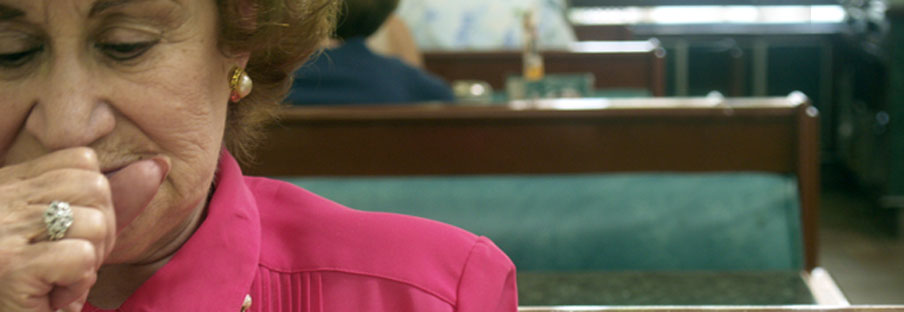Whooping Cough: Clearing the Air on Prevention
posted on: Friday November 8, 2013
Cases of pertussis (whooping cough), a highly contagious and serious respiratory tract infection, are on the rise. While adults typically recover from whooping cough with little or no complications, infants, on the other hand, are especially at risk for developing severe illness that could require hospital treatment.
According to the Centers for Disease Control, nearly half of babies younger than one year of age who get whooping cough need treatment in the hospital. Of those hospitalized, one in four will develop a lung infection; and one or two in 100 babies will succumb to complications. David Oliver, DO, an osteopathic physician from Ocala, FL highlights the tell-tale signs of whooping cough and provides tips to prevent getting and spreading the illness.
Signs of Whooping Cough
According to Dr. Oliver, once you become infected with whooping cough, it can take one to two weeks for serious signs and symptoms to appear. In adults “symptoms are so mild at first that some people mistake the early signs of whooping cough¾a runny nose or congestion, sneezing, and maybe a mild cough or fever¾for the common cold,” says Dr. Oliver. However, unlike the common cold, after one to two weeks, severe or prolonged coughing, marked at-times by a high-pitched intake of breath that sounds like whoop, develops. “Babies who do get this severe cough may turn blue and vomit after coughing fits. However, some babies might not develop this cough or develop this sound, but rather develop more severe complications such as pneumonia, seizures, and brain damage,” Dr. Oliver continues. Complications can be life-threatening for infants less than six months old. If you think your child has whooping cough, Dr. Oliver recommends you make an appointment with your family physician immediately or visit an urgent care center or a hospital’s emergency department if symptoms become more severe.
Preventive Tips for Parents and Caregivers
“Whooping cough is an extremely contagious illness and infants are especially susceptible to contracting it,” says Dr. Oliver. The majority of babies who get whooping cough are infected by parents, siblings, or other caregivers who are unaware that they even have the illness. “People with whooping cough usually spread the disease by coughing or sneezing while in close contact with others, who then breathe in the bacteria that cause the disease,” explains Dr. Oliver.
How can parents protect their children? “The first line of defense is to get your child vaccinated. Next is to make sure that those in contact with the infant are also vaccinated,” says Dr. Oliver. The approach to vaccination is called “cocooning.” In other words, immunize all those who can be vaccinated in order to form a shelter of protection around infants who do not yet have vaccine-produced immunity.
To protect you and your infant, Dr. Oliver recommends:
- If you are pregnant, it is important to receive a whooping cough booster vaccine (Tdap) between your 27th and 36th week of pregnancy; this may protect the infant during their first few months of life from whooping cough and/or from its serious medical complications.
- Surround your baby with vaccinated family members and caregivers.
- Ensure your child gets the complete set of whooping cough vaccines at these ages: 2 months, 4 months, 6 months, 15 to 18 months, and 4 to 6 years
- Schedule a booster shot (Tdap) at 11-12 years, the age when immunity from the pertussis (whooping cough) vaccine tends to wane.
- All adults need a “one-time” whooping cough booster vaccine called the Tdap as a substitute for one of their every ten year booster shots of the Td (tetanus and diphtheria) vaccine.
Concluding Thoughts on Whooping Cough
Whooping cough deaths, while rare, most commonly occur in infants. That’s why Dr. Oliver says it’s especially important for pregnant women—and other people who will have close contact with an infant—to be vaccinated against whooping cough. “While the vaccine may not guarantee with 100% certainty that your child will not catch the illness, it dramatically reduces their risk and can reduce the severity and length of complications should they end up contracting it,” says Dr. Oliver. “And if you ever suspect you or child has whooping cough, make sure to visit your doctor immediately.”
Preventive medicine is just one aspect of care osteopathic physicians provide. DOs are fully licensed to prescribe medicine and practice in all specialty areas, including surgery. DOs are trained to consider the health of the whole person and use their hands to help diagnose and treat their patients.
